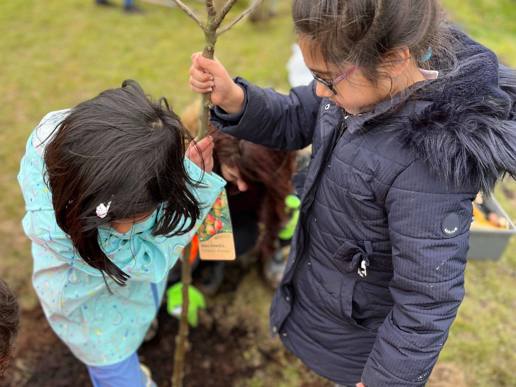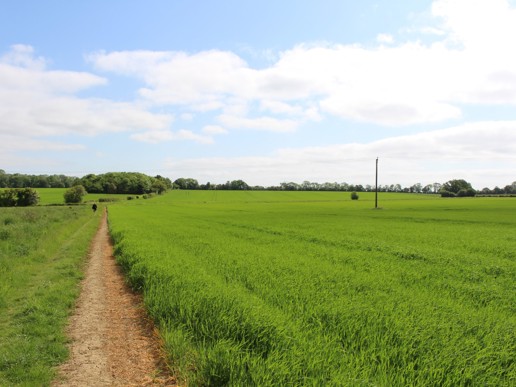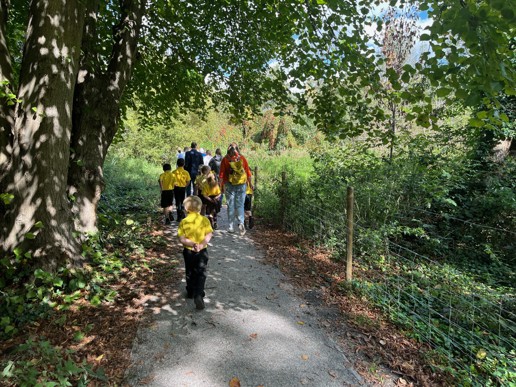Biodiversity enhancements with National Highways
Overview:
Ground Control is supporting National Highways (NH), to achieve "no net loss of biodiversity across their activities by 2025", as a step on the pathway towards achieving biodiversity net gain (BNG).
The A120 highway that connects Stansted Airport with Harwich International Ferry Port was a site identified where biodiversity value could be increased through efficient, sustainable landscaping. Achieving this was led by Ground Control as principal landscaping contractor.
Green Gains Solutions
- Botanical surveys
- BNG calculations (Using Natural England’s Biodiversity Metric)
- Habitat creation
Soft Landscaping
- Wildflower planting
- Non-native species and weed removal
- Vegetation management and clearance
The delivery of the project was completed on behalf of National Highways, with the works completed by:
- Principal Contractor: Eurovia/Tarmac
- Principal Landscaping Contractor: Ground Control
- Principal Designer: Atkins
- Traffic Management Provider: Chevron TM
 At the 2023 Asset Community East “Better Together Awards”, the project was awarded "Efficiency / Value-Added Initiative of the Year".
At the 2023 Asset Community East “Better Together Awards”, the project was awarded "Efficiency / Value-Added Initiative of the Year".
Scope of Works:
Works covered 27 locations across six sites within the A120 soft estate in Essex, spanning approximately 68 km between Stansted Airport and Harwich International Port. The project scope included the creation of over 15 ha of neutral grassland with an enhanced metric measured against Natural England’s Biodiversity Metric.
The project was completed in March 2023, with cost-saving initiatives meeting a need for works to be completed under budget without any impact on biodiversity enhancements.
Biodiversity Enhancements
Prior to completing enhancements works, our Green Gains Solutions and ecology team completed a series of botanical surveys to create a baseline value for existing habitats. These surveys were repeated once the new habitats had been established to give a quantifiable measure of BNG.
- Using Natural England’s Biodiversity Metric 2.0, the works demonstrated a net gain of 13.82 BNG units. This exceeded the expected output net gain of 10.42 habitat units.

Biodiversity Net Gain was achieved by:
- Wildflower seed planting to create a new habitat that provided food, shelter, and security for pollinators, as well as providing food for local wildlife and birds.
- Planting a series of plug plants within the existing grassland to enhance the habitat and create a more floristically rich grassland.
- Removing grass cutting and removal of arisings to reduce the nutrient content of soil.
- Removal of non-native, invasive vegetation to allow newly planted native planting to flourish and establish.
- Planting native shrub saplings to create mixed scrub vegetation.
- Maintenance works such as scrub clearance and the cut and collection of grassland vegetation to support the new environment.
In the long term, receptors adjacent to the scheme will benefit from increased vegetation and landscaping, resulting in beneficial landscape and visual amenity impacts.

Additional Project Results
In addition to 13.82 BNG units, good collaboration between all parties meant a successful project delivery with efficiency savings of 56% on plant materials.
This was achieved with a meticulous planting plan that carefully considered cost-saving initiatives that would not impact the biodiversity enhancement goals.
- Our teams increased spacing between plants from 1m to 1.5 metres throughout the project to reduce the number of plants required and save money on materials, and labour.
- Ecomatts in the original design were replaced with mulch mats, with our teams assessing that the same outcome could be achieved. Something that we had tested at the Wildfell Centre for Environmental Recovery. This also reduced the amount of pegs and fixings compared to the original Ecomatts.
- Identifying and removing ornamental features such as ornamental bark from the original design. This created a nature-first solution and unlocked additional savings for the National Highways.
Green Gains Solutions

Pinner Park Primary School

Introducing the Devana Centre for Environmental Recovery




